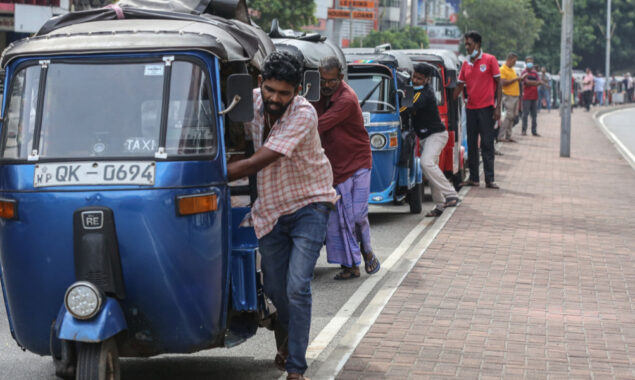
A line for fuel in Colombo on Friday. Credit.
- Senior U.S. officials visit Sri Lanka in an effort to identify ways to assist the island nation.
- Sri Lanka is facing an unprecedented economic crisis and severe shortages of key commodities.
- Prime Minister Ranil Wickremesinghe declared that the economy had “collapsed”.
Senior U.S. officials have arrived in Sri Lanka in an effort to assist the island nation in the midst of an unparalleled economic crisis and significant shortages of essential goods.
Senior U.S. officials arrived in Sri Lanka on Sunday in an effort to identify ways to assist the island nation in the midst of an unprecedented economic crisis and severe shortages of key commodities, while the energy minister warned that new gasoline imports will be delayed.
In the past two weeks, the United States has announced millions of dollars in aid to Sri Lanka, which has been relying on $4 billion in credit lines from its neighbor India. In addition, the World Bank has pledged $300 million to $600 million for the purchase of medicine and other goods.
Read More: EU leaders are suspicious of US plan to control price of Russian oil
Last Monday, Prime Minister Ranil Wickremesinghe declared that the economy had “collapsed” as a result of declining foreign exchange reserves and a growing debt, which were exacerbated by the epidemic and other long-term issues.
The U.S. mission was led by Kelly Keiderling, deputy assistant secretary of state for South and Central Asia, and Robert Kaproth, deputy assistant secretary of the Treasury for Asia.
During their four-day stay, they will meet with a variety of political representatives, economists, and international organisations to “explore the most effective ways for the U.S. to support Sri Lankans in need, Sri Lankans working to resolve the current economic crisis, and Sri Lankans planning for a sustainable and inclusive economy for the future,” the U.S. Embassy said in a statement.
“This visit underscores our ongoing commitment to the security and prosperity of the Sri Lankan people,” said Julie Chung, U.S. ambassador to Sri Lanka.
She said that as Sri Lankans endure some of the “greatest economic challenges in their history, our efforts to support economic growth and strengthen democratic institutions have never been more critical.”
The United States has pledged $120 million in additional finance for small and medium-sized enterprises, a $27 million investment to Sri Lanka’s dairy industry, and $5.75 million in humanitarian aid for those severely afflicted by the economic crisis. New grants for livelihoods and technical help for financial reform totaled $6 million.
Sri Lanka claims it is unable to repay $7 billion in foreign debt due this year, awaiting the outcome of rescue package negotiations with the International Monetary Fund. It must pay an average of $5 billion per year through 2026. The government has requested that the IMF organize a conference to unite Sri Lanka’s lenders.
During their four-day stay, they will meet a wide range of political representatives, economists, and international organizations to “explore the most effective ways for the U.S. to support Sri Lankans in need, Sri Lankans working to resolve the current economic crisis, and Sri Lankans planning for a sustainable and inclusive economy for the future,” the U.S. Embassy said in a statement.
“This visit underscores our ongoing commitment to the security and prosperity of the Sri Lankan people,” said Julie Chung, U.S. ambassador to Sri Lanka.
Read More: As Inflation Continues to Rise & Recession Fears Loom, YouGov poll
She said that as Sri Lankans endure some of the “greatest economic challenges in their history, our efforts to support economic growth and strengthen democratic institutions have never been more critical.”
The United States has pledged $120 million in additional finance for small and medium-sized enterprises, a $27 million investment in Sri Lanka’s dairy industry, and $5.75 million in humanitarian aid for those severely afflicted by the economic crisis. New grants for livelihoods and technical help for financial reform totaled $6 million.
Sri Lanka claims it is unable to repay $7 billion in foreign debt due this year, awaiting the outcome of rescue package negotiations with the International Monetary Fund. It must pay an average of $5 billion per year through 2026. The government has requested that the IMF organize a conference to unite Sri Lanka’s lenders.
Read More News On
Catch all the Business News, Breaking News Event and Latest News Updates on The BOL News
Download The BOL News App to get the Daily News Update & Follow us on Google News.




